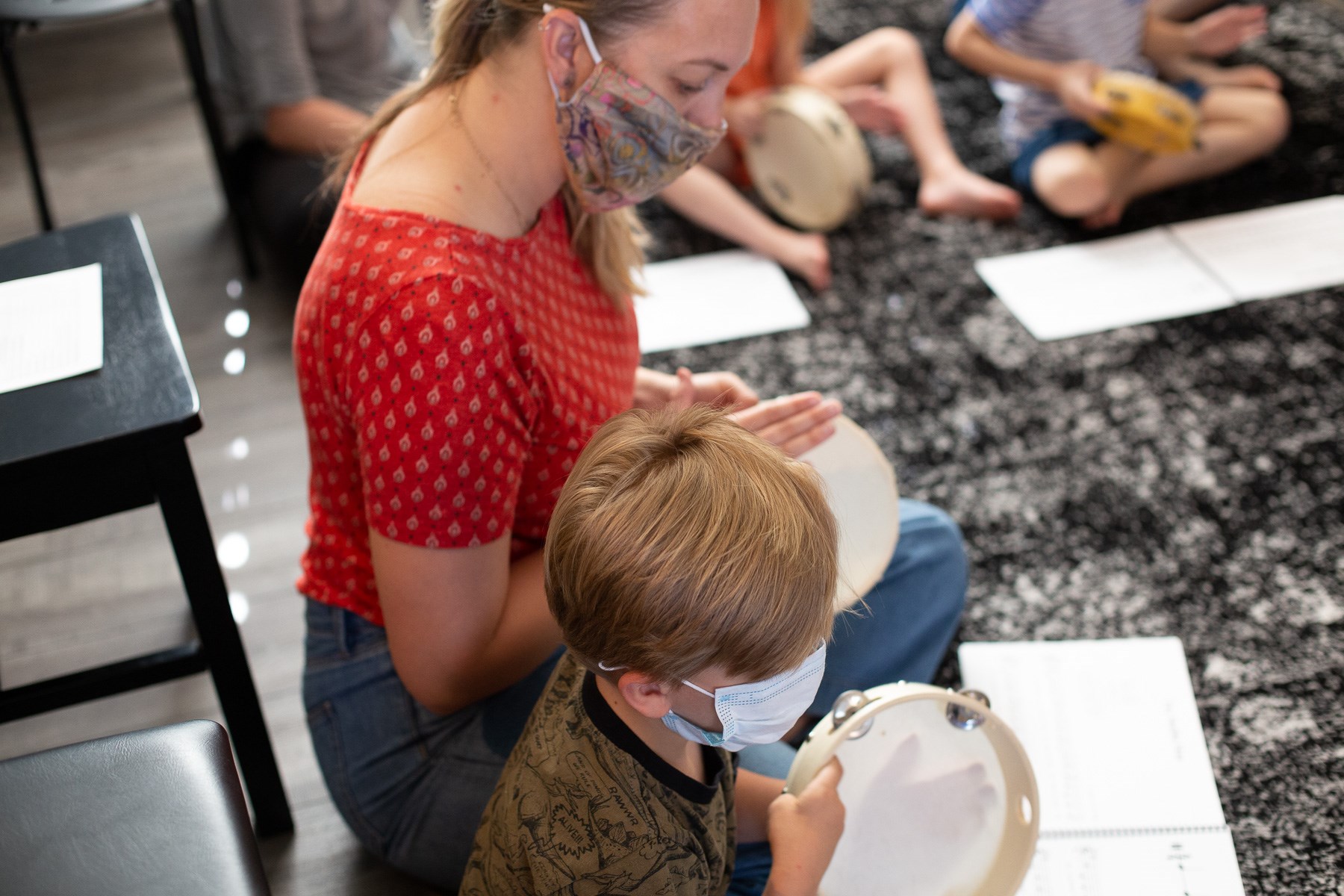What Makes a Great Piano Parent?
Wednesday, July 28, 2021 by Bonnie Jack | Parent Education

I assume when parents enroll their children in lessons with me that they are hoping for results. They are not paying me to babysit their children for 45 minutes a week; I'm much too expensive for that. But the thing is that those results actually happen mostly at home. What we do in lessons plants the seed, but in order for it to grow, it must be watered every day. In my experience, the most important factor in determining a student’s success is involved and supportive parents. So, what makes a great piano parent?
Here are my top 3 qualities of a great piano parent:
- Communication: Open and honest communication between teacher, student, and parent is essential. I do my best to communicate clearly to the student in lessons, about what they should be working on and what I expect of them. I encourage them to communicate with me about what their goals are, and what questions they have. I also do my best to communicate with the parent about scheduling (upcoming dates, lesson conflicts, etc.), and about how lessons are going and how the student is doing in general. Please read my emails. Please respond. Please put dates on your calendars. And please reach out to me any time you have questions or concerns.
-
Consistency: This manifests in a few different ways:
- Get your child to their lesson every week (to quote Elissa Milne: "You simply cannot miss lessons. Unless you’ve just had a car accident, your child has a communicable disease, or your grandmother’s funeral couldn’t be scheduled any other day.") Your insistence on keeping this weekly appointment will show your child how important it is.
- Help your child develop a consistent and long-term daily practicing habit. Music is not an easy or a quick pursuit — to develop any level of competency requires time. How much time? This is up for debate, but if 10,000 hours makes you an expert, maybe we could shoot for something like 3,000 hours for a baseline competency? Which is about 6 hours a week for 10 years. Talk with your child about what time of day makes the most sense. Many kids do well practicing in the mornings, when they feel fresh and before other tasks get in the way. Others do well practicing right after school and a snack, before homework (and video games) take over. Your kids might be resistant at first, but once they recognize that this is a new life habit that isn't going away, they will settle into the routine, and the progress will begin to add up.
- Put recitals and other studio events on the calendar ahead of time, and make them a priority in your schedule. These events are the payoff for all your child's hard work. Think of the message you are sending if your child has practiced for 3-4 months to be ready for a performance, and you forget about it or schedule something else on top of it.
- Growth Mindset: Because guess what? Trying to master something as difficult as a musical instrument can be very discouraging. If kids heading into this journey are not armed with a growth mindset, they will give up. And guess where kids learn a growth vs fixed mindset? Yep, it's from you. I can help, and I will do my best, but you are the strongest force in their lives for creating a growth mindset. If this concept is new to you, or if you want a refresher, it is worth 10 minutes of your time to listen to Carol Dweck's TED talk.
Most of all, a great piano parent is dedicated to learning and growing themselves, as they guide their children through their piano studies. If you are new to this journey, welcome! And congratulations, for choosing to give your child the wonderful gift of music. You have a fantastic journey ahead of you, full of twists and turns and hopefully many moments of wonder and beauty and accomplishment. You've got this!
Other Resources for Being a Great Piano Parent:
